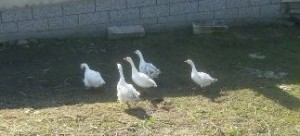irregular plurals old english
Irregular Plurals
Singular and Plural Nouns
In terms of quantity, nouns take on singular or plural forms. Singular nouns indicate one person or thing. Plural nouns refer to two or more persons or items.
The plurals of English nouns are further divided in “regular” and “irregular” forms.
Regular Plural Nouns
Regular plural nouns are formed by affixing –s, –es, or –ies to their singular forms. Most nouns have regular plural forms.
Regular plural noun = (singular noun)-s/-es/-ies
Examples:
| Singular Forms | Plural Forms |
|---|---|
| pineapple | pineapples |
| beaver | beavers |
| piano | pianos |
| wish | wishes |
| watch | watches |
| fish | fishes |
| hero | heroes |
| body | bodies |
Irregular Plural Nouns from Old English
Irregular plurals do not adhere to the “s-rule”. Instead they follow a miscellany of patterns.
The plurals of some nouns, in this case from Old English, are formed by a vowel change or taking on additional letters:
| Singular | Plural |
|---|---|
| woman | women |
| man | men |
| child | children |
| ox | oxen |
| foot | feet |
| goose | geese |
| tooth | teeth |
| mouse | mice |
| person | persons, people |
Loan words in English from foreign sources (mainly Greek and Latin) sometimes retain their original plurals. These include the following:
| Singular | Plural |
|---|---|
| alumnus | alumni |
| cactus | cacti, cactuses |
| analysis | analyses |
| crisis | crises |
| bacterium | bacteria |
| medium | media |
Exercise. Respond to the following
1. The King summoned the Pied Piper to court. Why?
2. You should eat lots of vegetable, while avoiding sweets, candies and desserts. Why?
3. What can you say about someone who plays very awkward basketball or football?
Answer the following Questions
Or respond to the statements. Say if they are true, not true/false, yes, no, yes and no, sometimes, maybe, it depends, in the middle, possibly, I agree, I disagree. Say why and give examples.
1. Geese fly in a “V” formation. Why do geese fly in a “V” formation? Who is at the front of the “V”?
2. People in pre-industrial, traditional societies (without dentists) have perfect, pearly-white teeth.
3. Is it “okay” or “ethical” to use mice in laboratory experiments? What about monkeys? People?

4. Young children should not be allowed to watch TV, eat snack foods or use cell phones.
5. Most success in big business has to do with contacts and networking among university alumni.
6. Women dominate the education industry; men dominate construction and transportation (trucking and shipping).
7. In the future, farmers will go back to using oxen to plow (plough) fields and transport goods.
8. Which is better, the metric system or SI (Systeme International d’Unites or International System of Units), or imperial system (the feet-pounds-gallon system)? Are there still vestiges of an older, traditional system in your country?
9. What sort of statistical analyses does your school, company or organization conduct?
10. The presence of most bacteria and viruses are not the primary concern; they’re everywhere. It’s the body’s immune system that matters more.
11. Cacti (cactuses) are a popular ornamental plant in my city.
12. There are too many negative reports in the media: accidents, crime, natural disasters, political scandals, wars. There needs to be more positive, uplifting stories.
13. When written in Chinese, the word for “crisis” is compose of two characters: one represents danger—the other opportunity.

